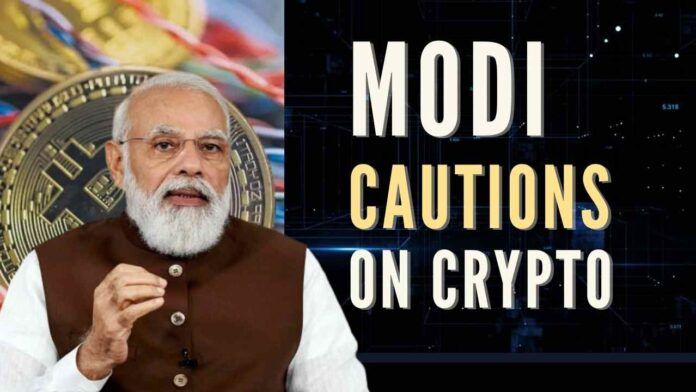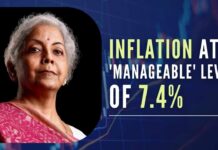
PM Modi on crypto currency: Warns crypto could spoil the youth
In a virtual address at the Sydney Dialogue, Prime Minister Narendra Modi on Thursday said that all democratic countries need to work together on crypto currency and ensure that keep it safe from going into the wrong hands. He also cautioned that it may spoil the youth.
He said that the digital age is changing everything as it has redefined politics, economies, and societies and has raised new questions on sovereignty, governance, ethics, rights, and security.
Delivering the keynote address at the inaugural Sydney Dialogue via video conferencing, PM Modi spoke on the theme of India’s technology evolution and revolution and the noted recognition for the country’s central role in the Indo-Pacific region and in the emerging digital world.
Giving an example of the virtual currency, PM Modi on crypto currency said, “Take crypto currency or Bitcoin for example. It is important that all nations work together on this and ensure it does not end up in the wrong hands, which can spoil our youth.
“Noting the benefits of the digital age, the Prime Minister also said that the world also faces new risks and new forms of conflicts across diverse threats from the sea-bed to cyber to space.
“The biggest strength of democracy is openness. At the same time, we should not allow a few vested interests to misuse this openness”, the Prime Minister said.
He also said that as a democracy and a digital leader, India is ready to work with partners for shared prosperity and security.
“India’s digital revolution is rooted in our democracy, our demography, and the scale of our economy. It is powered by the enterprise and innovation of our youth. We are turning the challenges of the past into an opportunity to take a leap into the future.”
Listing important transitions taking place in India, the Prime Minister said that the world’s most extensive public information infrastructure is being built in India. Over 1.3 billion Indians have a unique digital identity, six hundred thousand villages will soon be connected with broadband and the world’s most efficient payment infrastructure, the UPI, and the latest the Aarogya Setu and CoWin app for vaccination.
“We are investing in developing indigenous capabilities in telecom technology such as 5G and 6G. India is one of the leading nations in artificial intelligence and machine learning, especially in the human-centered and ethical use of artificial intelligence. We are developing strong capabilities in Cloud platforms and cloud computing“, he added.
He also said India’s contribution in coping with the Y2K problem and its offering of the CoWin platform to the world as open-source software are examples of India’s values and vision.
“India’s democratic traditions are old; its modern institutions are strong. And, we have always believed in the world as one family”, he added.
Describing India’s extensive experience with the use of technology and policy for the public good, he said that inclusive development and social empowerment can be of great help to the developing world.
“We can work together to empower nations and their people, and prepare them for the opportunities of this century”, he noted.
Giving a roadmap for democracies to work together, PM Modi called for a collaborative framework “to invest together in research and development in future technology; to develop trusted manufacturing base and trusted supply chains; to deepen intelligence and operational cooperation on cyber security, protect critical information infrastructure; to prevent manipulation of public opinions; to develop technical and governance standards and norms consistent with our democratic values; and, to create standards and norms for data governance and for cross-border flow that protect and secure data.”
He said the emerging frameworks should also recognize national rights and, at the same time, promote trade, investment, and the larger public good.
[With Inputs from IANS]
PGurus is now on Telegram. Click here to join our channel and stay updated with all the latest news and views
For all the latest updates, download PGurus App.
- UP Special Task Force arrests Mahadev app India head, his associate from Lucknow - April 26, 2024
- CBI raids Sheikh Shahjahan’s relative in Sandeshkhali; seizes huge cache of arms, explosives - April 26, 2024
- Will ‘exit India’ if forced to break encryption: WhatsApp to Delhi High Court - April 26, 2024










